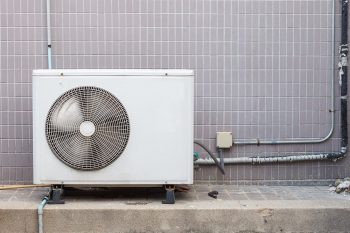
Proper recycling of appliances is not only an environmentally friendly practice but also a legal requirement in many areas. Among the myriad appliances that fill our homes, dishwashers are one of the most common and can pose a challenge when it comes to disposal. This comprehensive guide will walk you through the process of how to recycle a dishwasher and the environmental benefits of doing so.
To recycle a dishwasher, first disconnect it from the power source and water supply, then remove it from its location. Clean it thoroughly and check for hazardous materials. Once prepared, find a local recycling center that accepts dishwashers using resources like Earth911 or RecyclerFinder.com. Remember, some parts of the dishwasher may not be recyclable and will require separate disposal.
Why Recycle a Dishwasher?
Recycling a dishwasher offers several environmental benefits. These include energy conservation, reducing landfill waste, minimizing raw material extraction, preventing toxic substance release, and supporting sustainable practices.
Manufacturing new appliances from virgin materials consumes a significant amount of energy. By contrast, recycling allows for the recovery and reuse of materials, reducing the need for energy-intensive extraction, refining, and manufacturing processes.
Initial Steps to Take Before Recycling a Dishwasher
Before you recycle your dishwasher, there are several steps you need to take to prepare it for the recycling process.
- Unplug the appliance: Disconnect the dishwasher from the power source and let it cool down for a few days.
- Disconnect water and drain connections: Detach the dishwasher from the water inlet and drain pipe.
- Remove the dishwasher from its location: Carefully remove the dishwasher from its installed position, making sure to avoid any damage to the surrounding area.
- Clean the dishwasher: Thoroughly clean the interior of the dishwasher and remove any personal belongings.
- Check for hazardous materials: Some dishwashers may contain hazardous materials like mercury switches or refrigerants. If your dishwasher has such components, you may need to contact a professional for their removal.
- Find a recycling center: Use resources like Earth911 or RecyclerFinder.com to locate recycling centers or services in your area that accept dishwashers.
How to Safely Disconnect a Dishwasher for Recycling
To safely disconnect a dishwasher for recycling, you’ll need to follow several steps. These include turning off the power and water supply, disconnecting the water supply line and drain hose, removing any attachments, pulling out the dishwasher, removing any remaining water, and transporting the dishwasher.
Parts of a Dishwasher That Can Be Recycled
Dishwashers are almost entirely recyclable, containing valuable materials like plastic, stainless steel, and various other metals. However, some parts of a dishwasher cannot be recycled, including plastic fused with aluminum, certain glass items, and mixed plastics, bioplastics, or multi-layer materials.
Disposing of Non-Recyclable Parts
For the parts of your dishwasher that can’t be recycled, there are several options for disposal. These include taking them to a landfill, contacting your local hazardous waste disposal facility, hiring a professional junk removal service, or taking them to a scrap metal recycling center.
Costs Involved in Recycling a Dishwasher
There are potential costs involved in recycling a dishwasher. These can vary depending on factors such as location, transportation, and recycling fees. However, there are also ways to minimize costs, such as checking if your local waste management company offers free appliance pickup and recycling services, donating your dishwasher if it is still in working condition, selling or giving away your dishwasher to someone in your community who may need it, or looking for recycling centers or scrap yards that offer cash for appliances.
Where to Recycle Appliances in Your Area
To recycle appliances in your area, you can start by using the local recycle finder on this site or by contacting your local waste management company. They should be able to direct you to a facility that they run or one that they refer people to. Some businesses focus on repairing appliances that can be reused rather than retired, so this is another excellent place to look.
Conclusion
Recycling your dishwasher is an environmentally responsible choice, as it helps conserve resources and reduce landfill waste. By following the steps outlined in this guide, you can ensure that your old dishwasher is disposed of in a way that minimizes its impact on the environment and contributes to a more sustainable future.
Frequently Asked Questions
Can I recycle my dishwasher if it’s still working?
Yes, you can. If your dishwasher is still in good working condition, consider donating it to a charity or selling it. Some recycling centers also accept working appliances.
What happens to my dishwasher after it’s recycled?
After your dishwasher is recycled, the valuable materials like plastic, stainless steel, and other metals are extracted and reused for manufacturing new products. Non-recyclable parts are disposed of in an environmentally responsible manner.
Can I recycle other appliances in the same way as a dishwasher?
Yes, you can. The recycling process for most home appliances is similar. Always check with your local recycling center or waste management facility to ensure they accept the specific appliance you want to recycle.
Why is it important to disconnect the dishwasher from its power source and let it cool down before recycling?
It’s essential to disconnect the dishwasher from its power source and let it cool down to ensure safety. This step prevents any potential electrical accidents when handling the appliance.
Are there any penalties for not recycling large appliances like dishwashers?
Depending on your location, there may be legal requirements for recycling large appliances. Failure to comply could result in fines. Always check with your local waste management facility or municipal authority to understand the recycling laws in your area.












